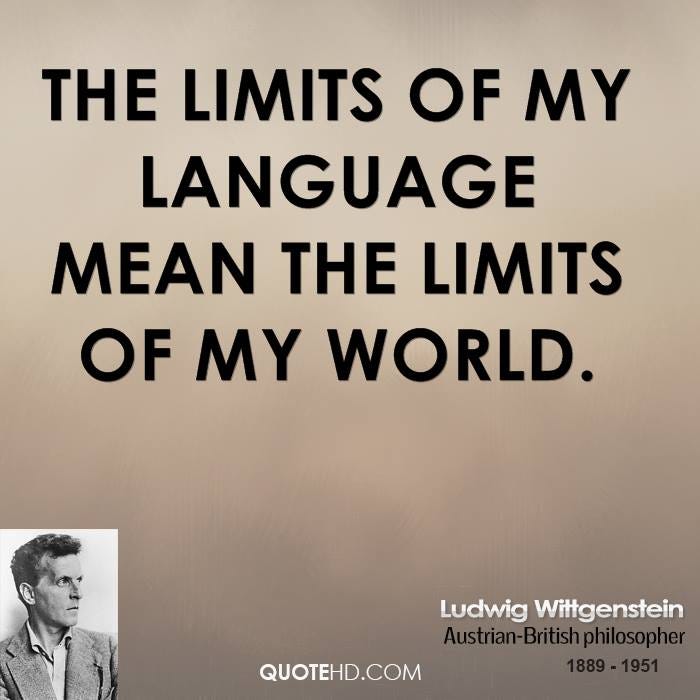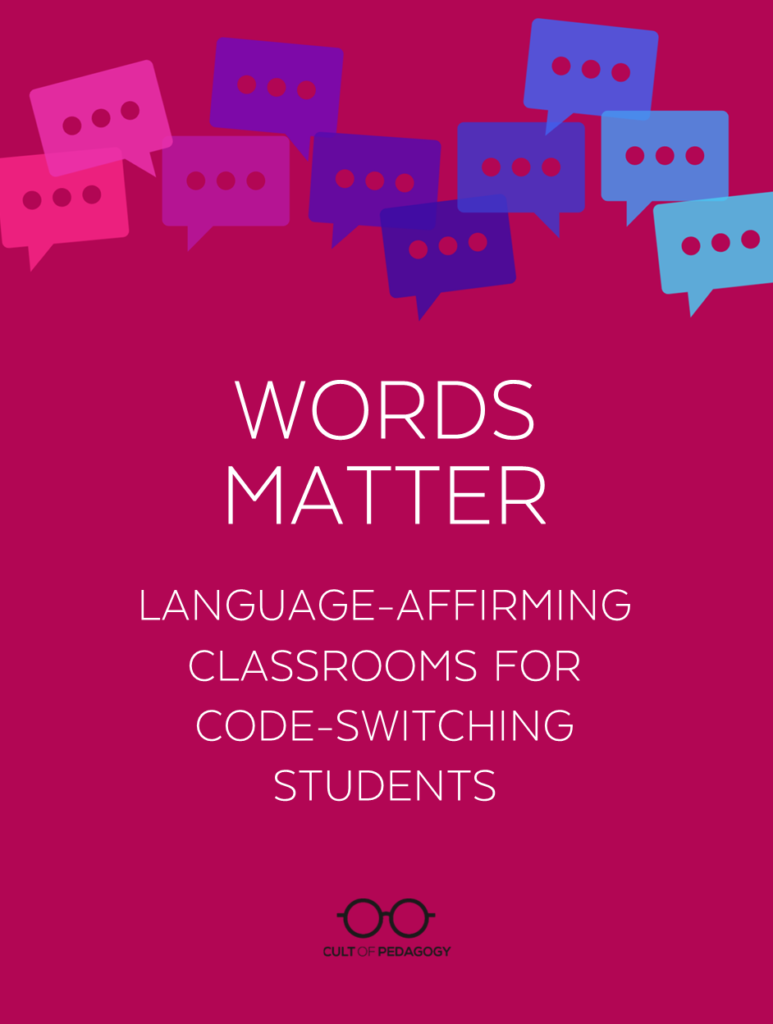#58 Varieties of English
Corpse, Corps, Horse and Worse; What People Get Wrong about African-American English, What is Blaccent?, Words Matter: Language Affirming Classrooms for Code-Switching Students, Spanglish
Quotes & Things
I love learning about English, how it has changed, the different ways it can be spoken (and spelled) and how to most effectively teach it. I want to teach my students (and my kids) that writing is about communication and becoming more effective in our messaging. Yes, this can mean learning some grammar and punctuation rules, but it does not mean that there is one correct way of writing or speaking in English. Writing is an art, but we sometimes treat it more like a science. Now I love diagraming sentences as much as the next person (or probably quite a bit more), but I want to take us on a journey of the varieties of English and how those varieties can affect our identities and how we are perceived in society.
Podcast Recommendation
99% Invisible episode 460 “Corpse, Corps, Horse and Worse”
Let’s start off with exploring how the English lanugage has changed over time and why the spellings are so confusing. The takeaway: the printing press hit our language at the wrong time, while we were in the middle of a large shift, resulting in unusual spellings and with vestiges from other languages that don’t make sense with modern English.
YouTube Video Recommendations
“What People Get Wrong About African-American English” from Otherwords
If you haven’t ever thought about the history, grammar, or cultural impact of African-American English, this video is for you. I love this channel and how it explains linguistic concepts easily and briefly. If you have ever thought that African-American English is inferior to the way you speak, I recommend you give this a watch to learn how and why it was formed.
“What is Blaccent?” by Historian’s Take
Above we learned about African-American English, but here were learn about what happens when people who are not Black take on this way of speaking as their own. This short video takes us through the history of “vocal blackface” by way of the radio show Amos and Andy, the music of Elvis Presley, and to the speech patterns of Awkwafina.
The main problem with “people who are not black adopting African American Vernacular English” is that those people are often praised for it. They are seen as cool and can gain access, money, and power by using the blaccent. However, when Black people speak like this, they are seen as unintelligent or grammatically incorrect. It is a big double standard.
I know I have engaged in blaccent before, just wanting to talk the way my friends did, but now I see that as a harmful practice. People who are not Black seem to get the benefits of Black culture without the prejudice.
Article Recommendation
Words Matter: Language-Affirming Classrooms for Code-Switching Students by Andrea Castellano
I am a teacher at heart, so though I am taking a break from teaching, I still gravitate to these kinds of articles from my favorite blog — Cult of Pedagogy, where K-12 teachers give tips and expand our knowledge about the art of teaching. And though I teach at the college-level, I have found this site to be consistently useful to me in my continual journey of becoming a better educator. This article may a bit niche to, but I think it can be helpful to all in understanding the complexities of learning and using English.
This article in particular discusses code-switching, what it is and why it’s useful. Castellano wants the classroom to be a safe space for students with different linguistic backgrounds and making room for different kinds of English is one way to do that. She gives valuable and practical tips for how to achieve this no matter the subject, but she also takes time to explain that Standard English is not the only English, nor is it the best type.
This is something that I cannot emphasize enough — there is no English that is better than any other whether it is Black English, Spanglish, or what most school systems teach as the correct form of English - Standard English. These different varieties of English are all equally useful in various contexts, follow their own rules and are sophisticated ways of making meaning.
As a writing teacher, this is a concept I continue to struggle with, a delicate balance I must walk. I am required to teach Standard English, but I also want to acknowledge other dialects and the history behind them. When I first began teaching, I believed that there was the one true English, the one that everyone should use, especially in Academic settings. But the more I learned about writing and teaching, the more I learned that Standard English is a dialect of power, and has been consistently wielded by people (often white people) as a way to demean or dismiss those that do not naturally speak or write this way.
In my recent teaching past, I would still teach Standard English, but I would teach it as one English among many, one that may serve them better in certain contexts because of the prejudice against other Englishes. But I have to say that I think I was in the minority on this view at my college.
One of my hesitancies to returning to teaching is that we are expected to grade on mastery instead of improvement. If I had it my way, we would not give out grades at all because they are actually a barrier to learning. I want to teach in a way that actually makes sense for helping students learn how to communicate effectively but does not penalize students for being more proficient in a different English other than the Standard.
If you want to take a deeper dive into this topic, might I suggest a 2020 blog post I wrote to discuss “An Anti-Racisit Writing Classroom”.
Poetry
“Spanglish” by Tato Laviera
I found this lovely poem written in a mixture of Spanish and English about the necessities and complexities of combining the two languages. I thought about translating the Spanish for my readers, but I think part of the beauty of this poem is that if you are not a Spanish speaker then you have to work to understand it (Google Translate works wonders). Language connects us to a culture and an identity and if we are mono-lingual, we can have a hard time understanding how difficult it can be to straddle two different cultures and how enriching it can be.
Thanks for reading!





